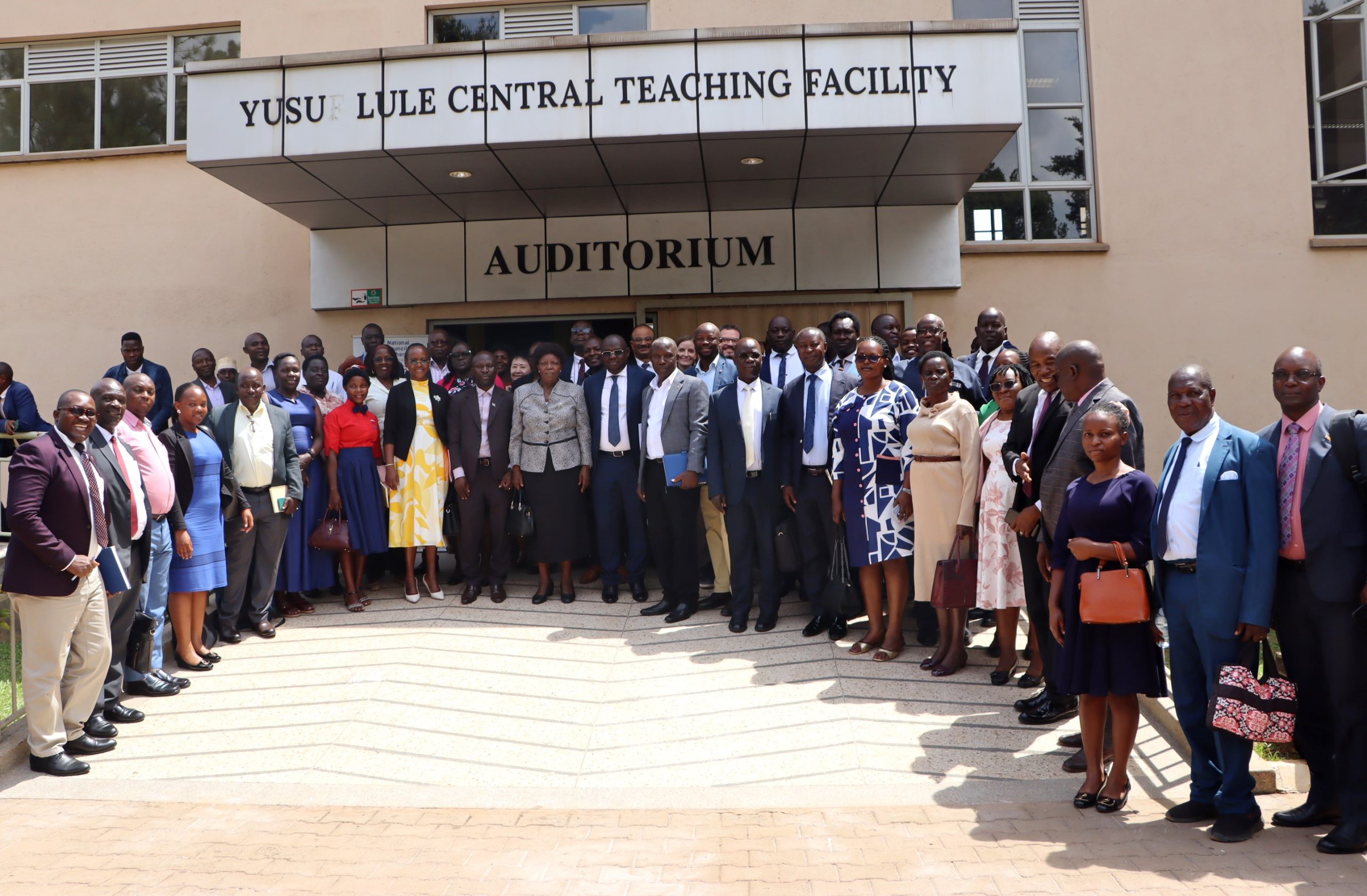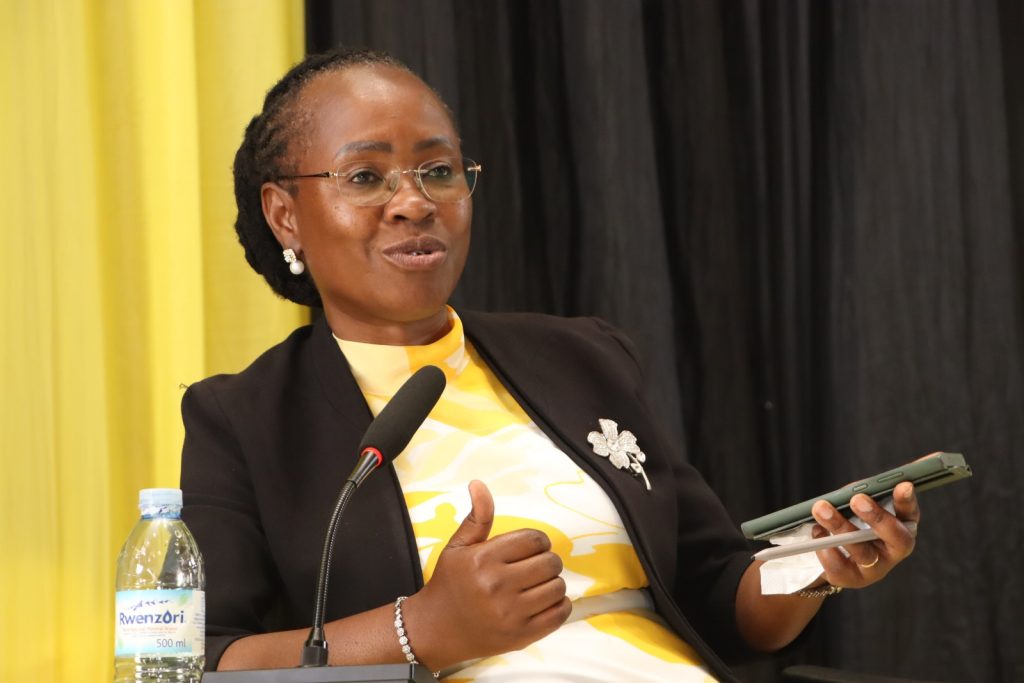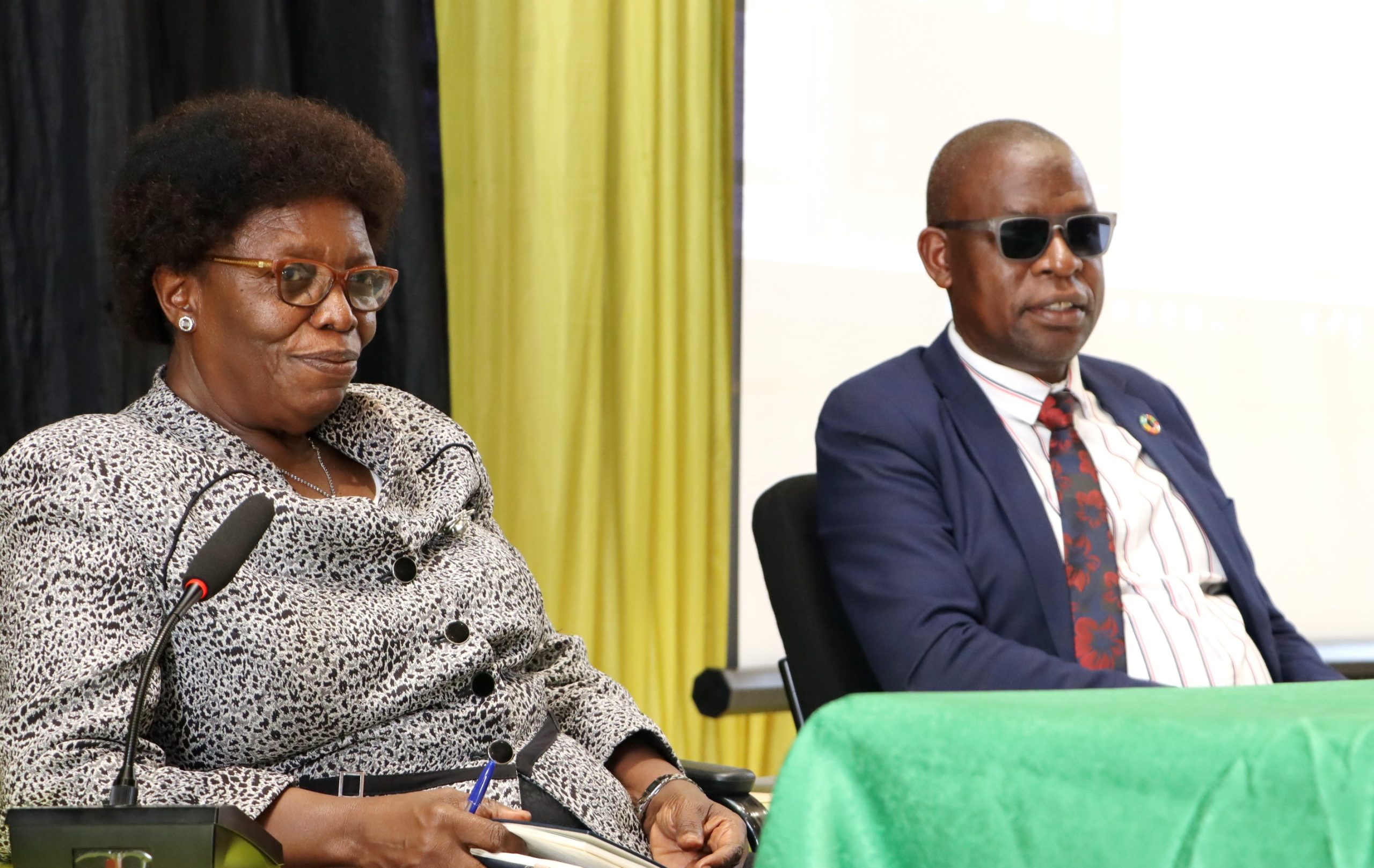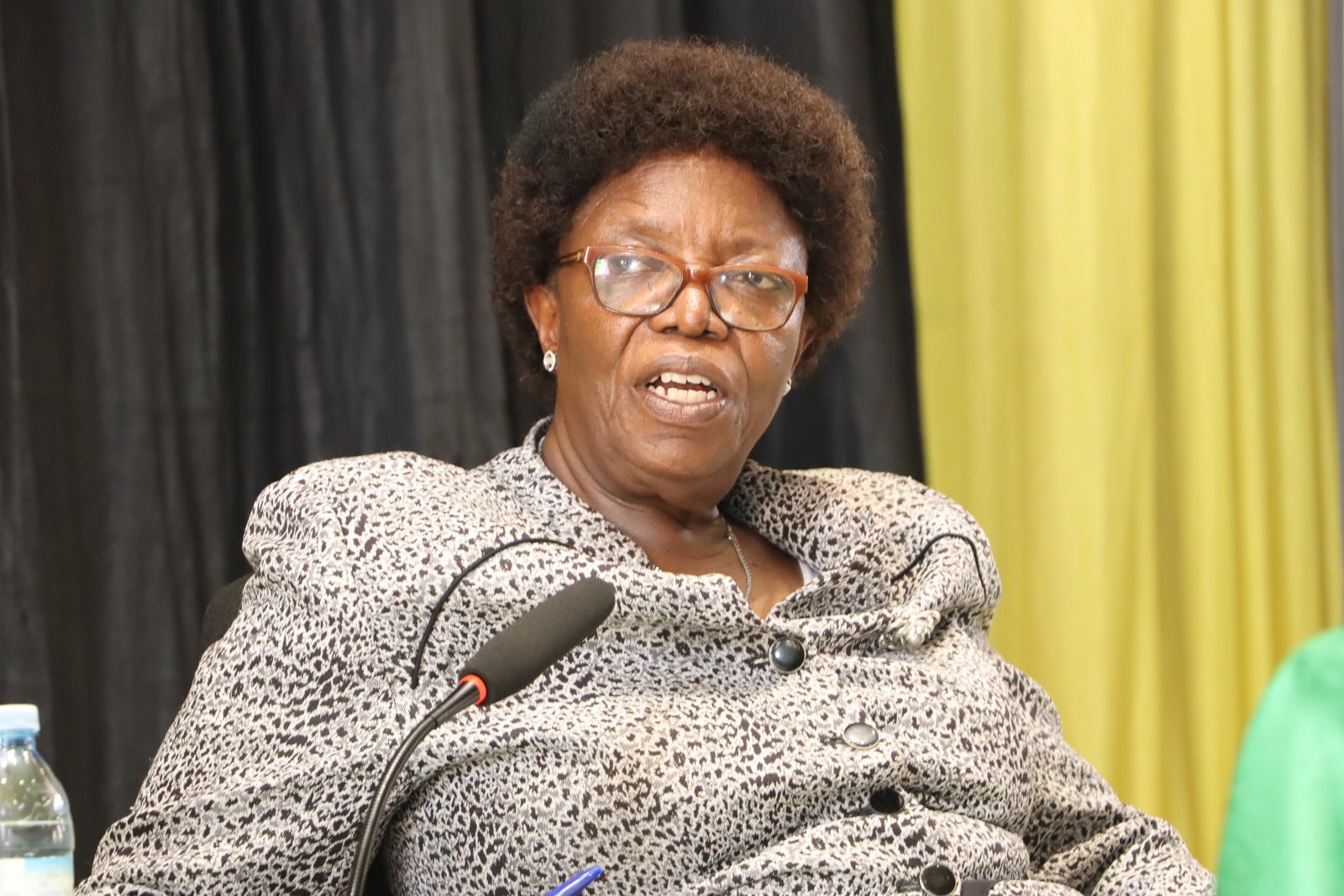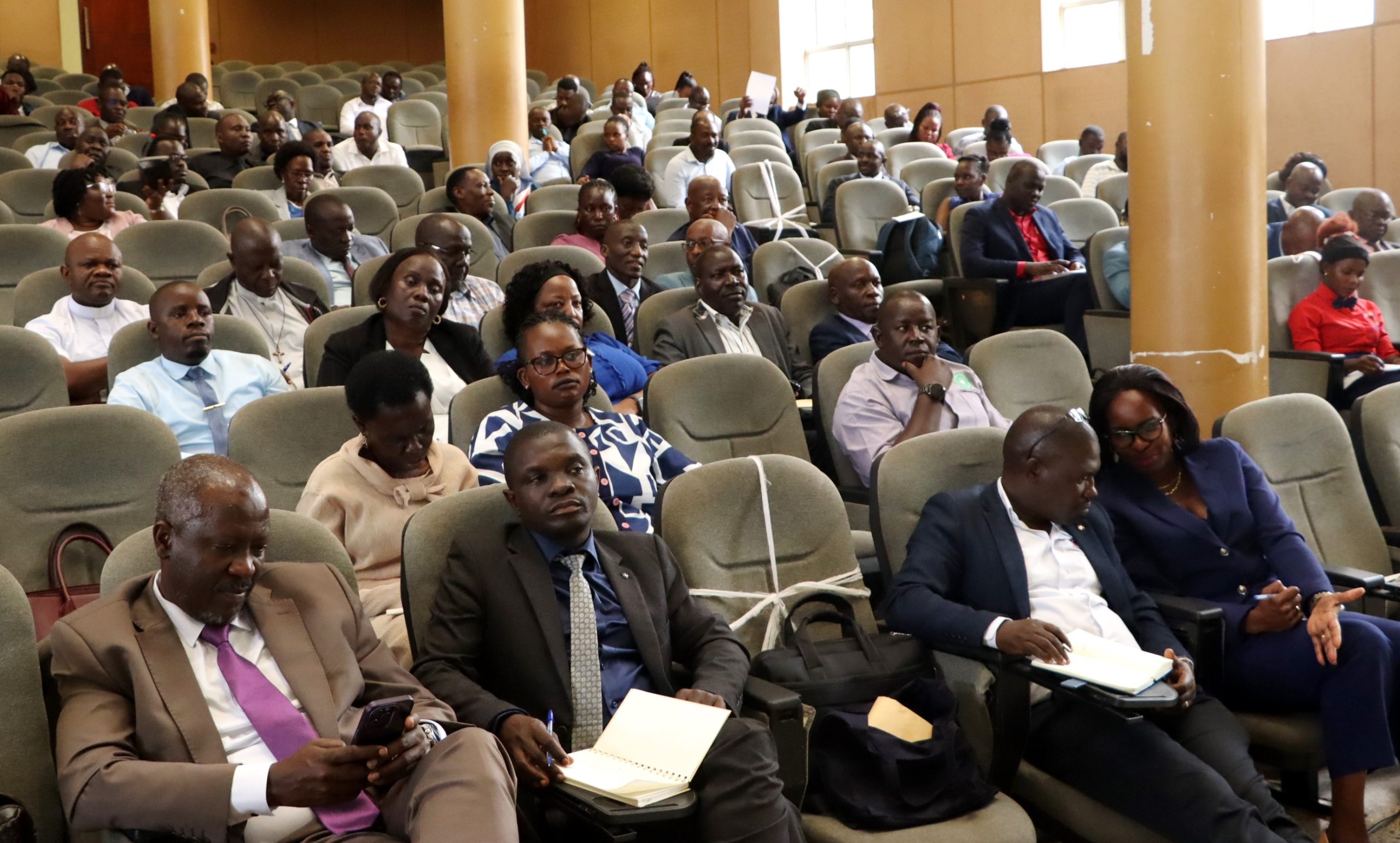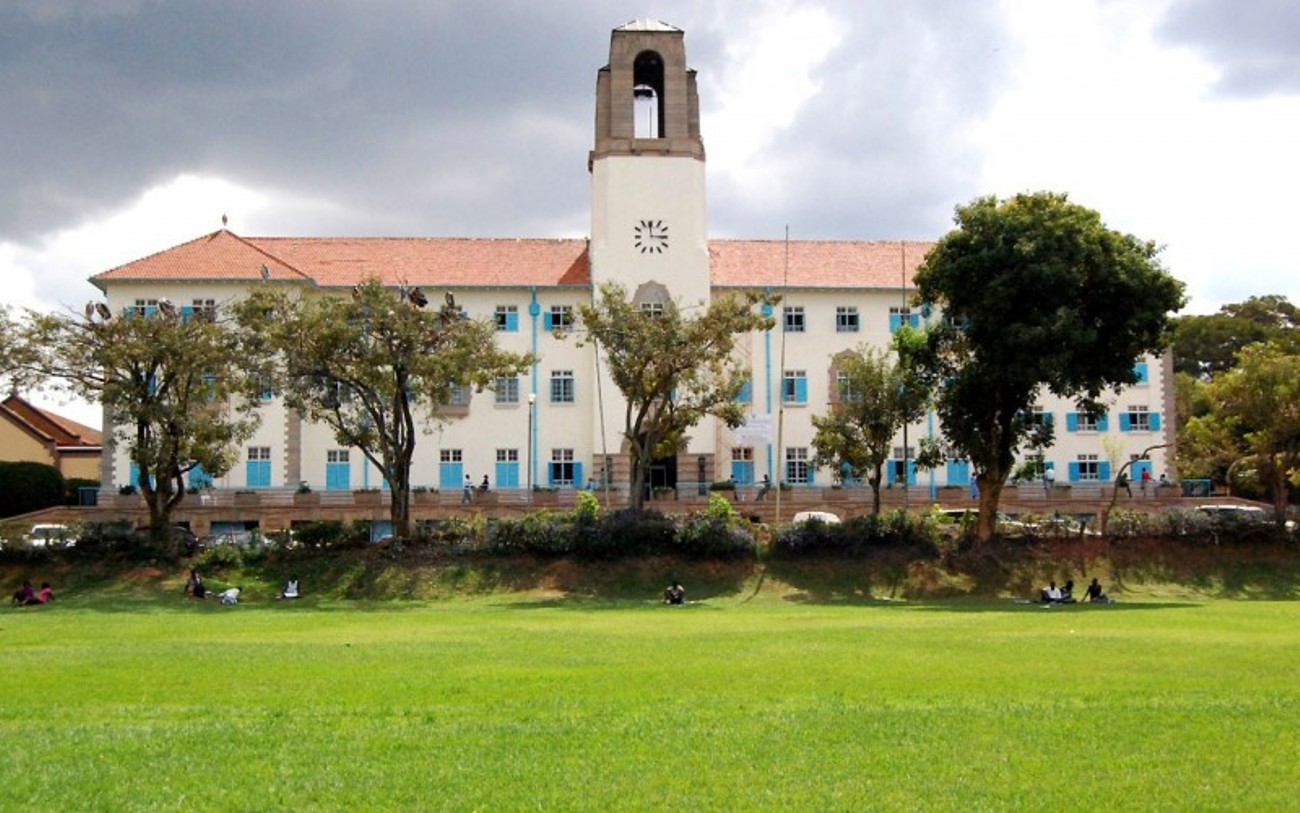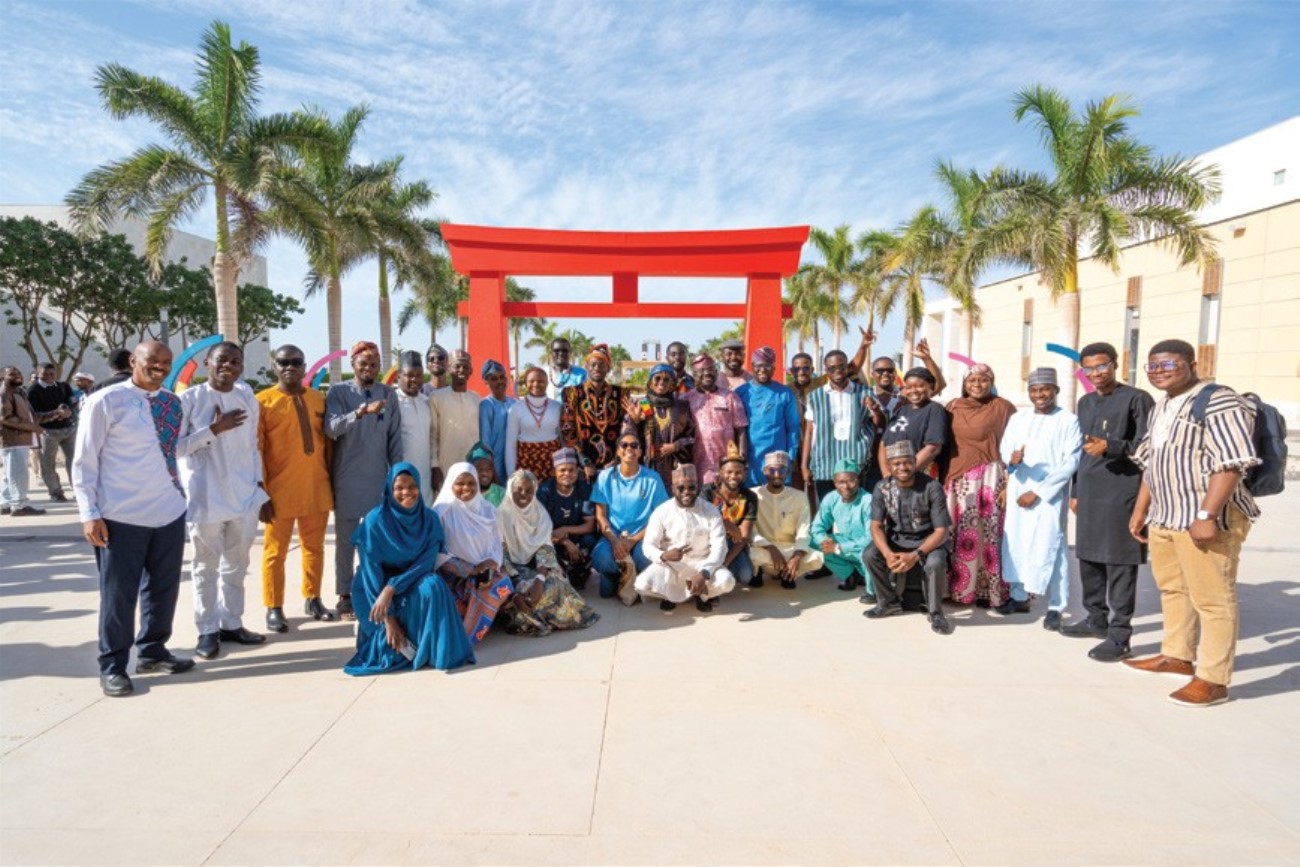On Friday 9th August 2019, the Office of the Deputy Vice Chancellor (Academic Affairs)-DVCAA in collaboration with the Directorate of Research and Graduate Training (DRGT) held the first workshop for Department Chairs under the theme “Building Institutional Capacity for Faculty Researcher Development, Funding and Management of Sponsored Research”. Held at the Grand Global Hotel in Makerere the workshop brought together Chairs from the College of Computing and Information Sciences (CoCIS), College of Education and External Studies, College of Health Sciences (CHS) and the College of Humanities and Social Sciences (CHUSS). This workshop was the second in the series of trainings supported by IREX's University Administration Support Program funded by the Carnegie Corporation of New York.
Welcoming participants to the workshop, the DVCAA Dr. Umar Kakumba shared that any university that thrives as a Centre of Excellence in Research must earmark the mechanisms that enhance the generation and dissemination of knowledge.

“As we all know; research is not quick yielding. Returns can take upwards of two to three or even five years. Research is also competitive. We must compete for funding from various calls. We therefore need these interactions to evolve a symbiotic relationship, share experiences and mechanisms of building robust research practices and other academic endeavours,” remarked the DVCAA.
Dr. Kakumba further shared that effective management of funded research is no longer only about the science. He therefore urged academic leaders to build the requisite skills in budgeting for research, writing winning research proposals, grants management, among others.
Delivering the keynote address on The 21st Century Research University: Trends and Experiences, the Vice Chancellor, Prof. Barnabas Nawangwe thanked Dr. Kakumba for taking on the role of DVCAA with the energy and enthusiasm required to propel Makerere University to the top of the research-intensive Universities’ leaderboard.

“We have a goal of becoming the top research-intensive university in Africa. Malaysia has in its Vision 2020 the objective of becoming an industrialised and developed nation by 2020 courtesy of the five out of its twenty Public Universities designated as Research Universities,” noted the Vice Chancellor, outlining Makerere University’s crucial role in Uganda’s development pathway.
Prof. Nawangwe added that Makerere’s high quality staff is one of the reasons the University is able to compete favourably in terms of research output with other Universities that have more resources. This quality staff, he shared, has among other achievements attracted two World Bank funded African Centres of Excellence in Materials, Product Development and Nanotechnology (MAPRONANO) and Crop Improvement (MaRCCI).

“MaRCCI is already producing results in crop improvements of indigenous food crops such as cowpeas sorghum. The breeding programmes have so far developed a high yielding sorghum line capable of producing up to ten times the yield of indigenous lines” explained the Vice Chancellor.
This, he noted would go a long way in improving food security and increase household incomes as Uganda’s population continues to grow rapidly, which is in line with the National Development Agenda.
The Director DRGT, Prof. Buyinza Mukadasi in his presentation on Research Governance & Organisational Capacity: Role of Central Research Office/Directorate expressed his conviction that Chairs of Departments are the epicenter of research activity in the University, by virtue of their being immediate supervisors and coordinators of all academic work in colleges.

“Heads of Department are therefore focal resource persons in building a sustainable research culture and research management systems to enhance the value proposition for quality and relevant research output at Makerere University” added Prof. Buyinza.
The Director further noted that there was a logical link between Research Governance and Research Output. As a way forward he proposed the need strengthen DRGT through the creation of additional divisions especially one in charge of Research Performance.

The presentations that followed were dedicated to: Effective Research Leadership; Research and Researcher Career Development; Funding Research; Managing Research Grants; and Knowledge Transfer Innovations. The Sessions were chaired by Dr. David Owiny, Dr. Sarah Ssali, Dr. Fredrick Muyodi, Prof. John Muyonga and Dr. Robert Wamala respectively.
Prof. Rhoda Wanyenze, Dean Makerere University School of Public Health (MakSPH) while delivering the presentation on Effective Research Leadership for a Research-led University noted that Chairs, by starting with the resources and structures they have now, could achieve a lot in terms of setting the pace for their Departments in the short, medium and long term.
“What goals do we have at Department, School and College level? Are these known by the people? What direction are we giving the staff we lead? Money is important and some people put money first, but I put people first. Invest in the people and good people will bring in the money” she both questioned and counseled.

She urged the Chairs to always be the leaders they desire to see. “Leadership is the key ingredient and it’s not at the top; it is at all levels. You cannot take people where you as a leader have not been. If it is writing, write; if it is putting in the extra time, do it; if it is winning grants, win them and then the people will be inspired to do the same.”
The online Oxford dictionary definition of an Incentive is a thing that motivates or encourages someone to do something or a payment or concession to stimulate greater output or investment. Presenting on Incentivising Research and Researcher Career Development, Prof. Tonny Oyana the Principal, College of Computing and Information Sciences (CoCIS) noted that whereas many African countries focus on the number of PhDs produced, in the case of research, they only make a difference if they are of high quality.

He further noted that whereas Researcher Career Development in Africa mostly starts at Masters level, Universities top tier research universities start nurturing talent as early as Secondary level. “When we admit top talents, let us streamline them. We should grow and nurture those talents in line with research interests. The US and South Korea have done it; we should also do it.”
Prof. Oyana called for the need to teach research as an organizational skill at higher education institutions and challenged Department Chairs to come up with talent lists of their academic units. These, he noted, would help to profile each lecturer’s research interests and use the amalgamated results establish research priorities at Department, School and College level.
“Thanks to establishing an effective grants management system, the School of Public Health manages a throughput of between US$ 29 to 33million annually. Academic Units should deliberately grow their grants capacity” remarked Dr. Roy William Mayega as he began his presentation on Establishing and Managing Research Grants: Perspectives and Prospects.

Dr. Mayega also shared that there has been a deliberate effort by MakSPH Leadership and Staff to search and apply for grants and funding opportunity announcement (FOA) notices as listed in GRANTS.gov; a U.S. Federal Government website that lets organisations from around the world apply for over 1,000 grants programs. He urged colleagues to also regularly look out for Annual Program Statement (APS) releases by USAID through the various country missions.
He tipped the Chairs on the need to incorporate monthly management meetings as good practice of the Grants Management Cycle, and urged his audience to always conduct due diligence on all collaborators to avoid bringing disrepute to the funding agency or host institution. Sustainability of the project after the funding cycle was another aspect that he emphasized ought to be included in the grant application. “Our funders like to see sustainability captured by the applicant.”

Research Funding and Building Functional Research Networks was the next presentation to the Chairs by Dr. Charles Masembe from the College of Natural Sciences (CoNAS), and Principal Investigator of a three year US$1.2m African Union (AU) Grant to prevent the spread of African Swine Fever (ASF) in Africa. Walking Chairs through his grant application and award process, he noted that academics ought to look at research as a business whose growth thrives on networking.
He urged colleagues who were starting out to opt for associate partner positions in grants so as to gain experience. Touching on the writing process, he admitted that it was hard for academics to subject their applications to scrutiny by a third party but noted that this was very important. “Get a neutral person to read through your application and trust them to point out areas of improvement. This will be important in improving your line of thought.”
Dr. Maureen Mayanja made the final presentation of the day on Knowledge Transfer, Innovations Development and Partnerships: Lessons from Leading Universities. She touched on the importance of establishing a one-stop centre for Knowledge Transfer at Makerere University because “structured systems ensure that information is shared university wide and immediate feedback on the data collected is disseminated to the communities that participated in the project.”

Presenting lessons on evaluating knowledge sharing from Michigan State University (MSU), Dr. Mayanja noted that the institution had come up with two vehicles; MSU Extension and MSU Technologies, to take their vast knowledge resources directly to the community and support commercialization of academic research respectively.
Using MSU Extension’s various positions and ranks, Dr. Mayanja emphasized the need to introduce Parallel Growth Structures, that allow staff to invest their efforts where their passions belong, without fear of being penalized. “A member of staff who is passionate about the extension system can grow from the rank of Program leader to Senior Program Leader, Extension specialist, Senior Extension Specialist, Extension Educator, Senior Extension Educator, Associate Program Leader and all the way to District Director Extension”
She also called for the need to Makerere to establish university-based partnerships for multidisciplinary research as vehicles that can attract funding from development partners and the industry.
Article by Public Relations Office
Related Article
Inaugural Deans' Workshop Addresses Research Management

 General4 days ago
General4 days ago
 Health2 weeks ago
Health2 weeks ago
 Innovation4 days ago
Innovation4 days ago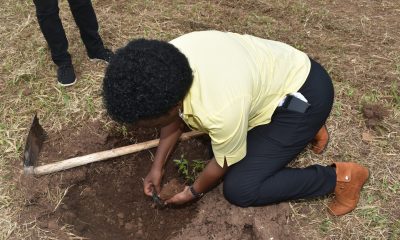
 Agriculture & Environment4 days ago
Agriculture & Environment4 days ago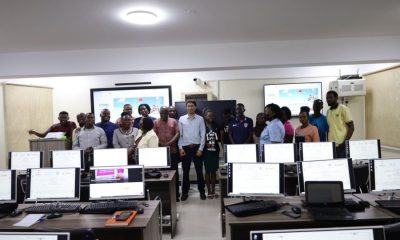
 Computing & IS5 days ago
Computing & IS5 days ago
